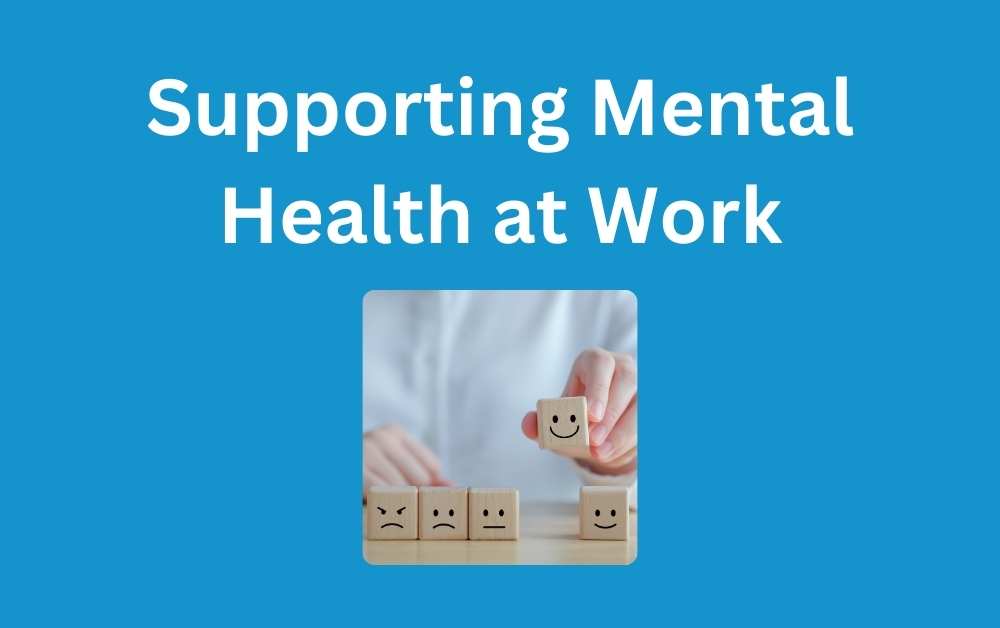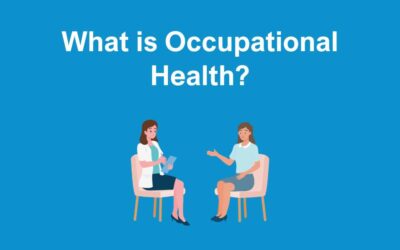“A healthy employee creates a healthy workplace. Health is a foundation of sustainability and success.” – Owen O’Kane (Psychotherapist, former NHS clinical lead, and author/public speaker)
Not only has the COVID-19 pandemic created numerous new hazards to our physical health, it has also created new challenges for our mental health. Mental health issues among staff are nothing new. However, with everything else going on, Covid-19 has meant these issues are on the rise. Forbes has reported that 69% of those working from home are finding it more stressful and reporting signs of burnout.
“Mental health problems cost businesses £35bn in the UK before Covid-19. It’s likely that will grow this year as a result of what many of us have experience over the last 12 months”. (Andy Bell, deputy chief exec of the Centre for mental health)
Supporting Mental Health At Work: Training
So how do you keep on top of your staff’s mental health? A preventative rather than a reactive approach. Tamsen Garrie (a director at Mental Health in the Workplace) recommends investment in good quality mental health training. Garrie also recommends separate manager-specific training that teaches managers how to spot the signs and provide appropriate support. Training can empower all your staff to be confident in tackling their own mental health issues and create a culture of openness. Staff feeling able to ask for help, request time off, or reduced workload to cope with mental health issues will mean less people turning up to work unhappy, unmotivated, and unproductive. At a higher level, you should ensure your policies are flexible and accommodating. This can include generous compassionate leave and allowances for caring responsibilities You can also look at provision of ‘mental health days’ for those who are struggling, and time off for medical appointments.
With all the preventative measure in the world you may still experience employees who reach a crisis point. If you have staff who had to take time off for mental ill-health, once they are ready to return it is vital that they are provided with adequate support. You should think about making reasonable adjustments, such as flexible working or a phased return to work. Regularly checking in with the employee is extremely important to make sure they are comfortable with their progress and workload. Trying to limit work-related stressors as much as possible will also help. This was evidenced by the 2018 Mental Health At Work Report which found 61% of employees experienced a mental health issue due to work. A workplace with an open, honest, and stigma-free approach to mental health will always make this transition easier for the employee. Furthermore, having robust return to work policies will make it easier for the employer as well.
The Difference between Mental Health and Mental Illness
It’s important to note the distinction between mental health and mental illness. For example, appropriate support for someone who is experiencing stress or burnout but is otherwise mentally well might entail mindfulness training, mental health informational resources, proper boundaries for work-life balance. They may also talk about mental health with friends and colleagues. Those with a mental illness, however, might require more support. In some cases, mental illness can be considered disabilities, and therefore are protected under the equalities act. This means as their employer, you must make sure you are complying with the law and making reasonable adjustments.
Workers with a mental illness earn, on average, £8,400 less than those who do not have one. This is due to significant barriers to employment according to a report by the Mental Health and Income Commission. For employees with long term mental illnesses, you should consider things like more generous sick pay policies. Once an employee has exhausted CSP, having to rely on SSP could erode their financial stability, which often has a further detrimental impact on mental health. Allowing for continuation of flexible and home working even after the pandemic could also be a good idea. People Management magazine found that 43% of people with a mental health condition said they were worried about returning to their usual working arrangements after lockdown.
Mental Health Support
If you would like help supporting mental health at work, we are hosting a webinar on 20th April 2021. This webinar will provide information on how to train managers, spot the signs and give advice on how to support employees. We will discuss benefits of a proactive approach to health and wellbeing at work and how an Employee Assistance Programme can help. Find out more on our website now. You can also contact us now on 01383 668178.







